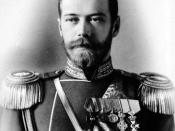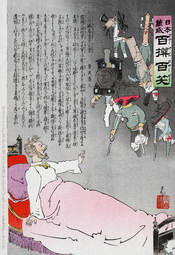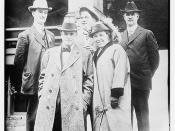The combination of factors that brought tension into the Russian society reached the top point in 1905; revolution took place because of military, economic, and political reasons.
The failure of the war against Japan was one of the main short-term causes of the revolution. 1904, Plehev, the Tsar's Minister of the Interior recommended Nicholas 'a small victorious war to stop the revolutionary tide'. This policy resulted in the Russo-Japanese War of 1904-1905. Unlike the expectations of Russia, the war was a disaster. Japan seized Port Arthur and most of their ships were destroyed, this defeat by the Far East Asian country was a humiliation. By 1905, the combination of public anger (caused by the war) and the economic slump (which brought food shortages and rapid increase in unemployment rate) resulted in continual strikes. The unnecessary and reckless decision of the Tsar at the wrong time made the basis of the revolution.
The peasants were poor and hungry, but they had to pay redemption payments, and the working conditions weren't better, because of the industrialization. On 9th 1905 (This day is also known as the bloody Sunday), Father Gapon (an Orthodox priest; leader of the Assembly of Russian Factory Workers) marched to the Winter Palace in St Petersburg, followed by more than 150,000 (there was a high level of support because of the bad working condition, the food shortages and unemployment) angry workers who suffered enough, to give the Tsar a petition. They demanded higher wages, shorter working hours and free elections. Liberals also joined in, demanding for a constitution that would give political rights to the people and set up a parliament. When the marchers arrived at the Winter Palace, Russian troops opened fire against their own citizens; they killed over a hundred demonstrators. The Russian people thought this event...


